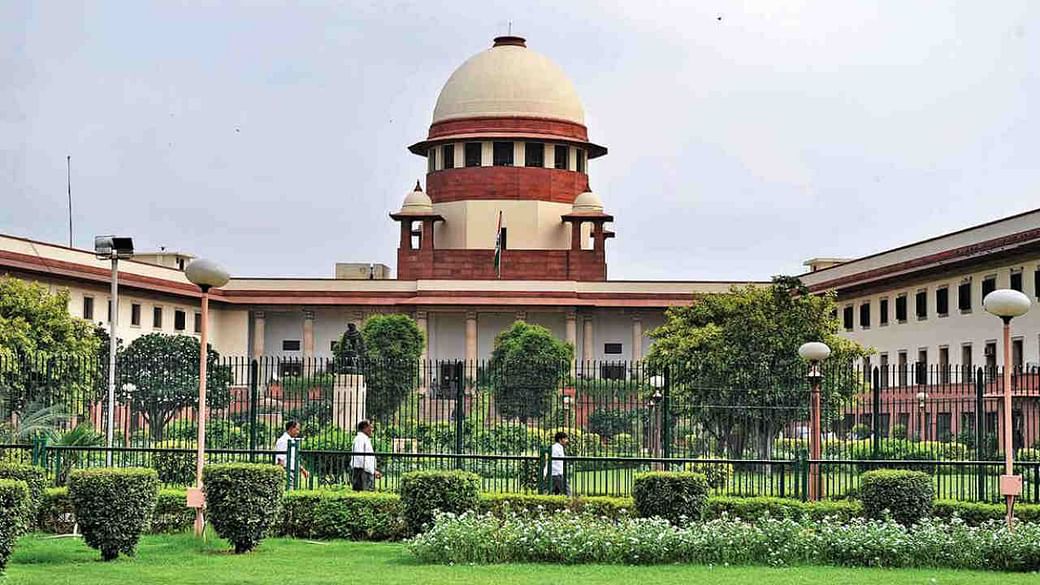
Mobile phone users can approach consumer forums with complaints

An individual facing any deficiency in telecom services can approach consumer forums directly with their complaints against the company.
The consumer forum’s jurisdiction in such matters is completely valid despite the fact that consumers had the recourse for remedy of arbitration under the Indian Telegraph Act of 1885, ruled a three member SC bench.
A bench of Justices DY Chandrachud, Surya Kant and Vikram Nath said that it would be open for a consumer to opt for the remedy of arbitration, but there is no compulsion in law to do so and it would be open to a consumer to seek recourse to the remedies provided under the (Consumer Protection) Act of 1986, now replaced by the Act of 2019.
The SC bench delivered this verdict on an appeal made by Vodafone challenging an order of the National Consumer Disputes Redressal Commission (NCDRC). The order had upheld the view of the State Consumer Disputes Redressal Commission which had ruled that Section 7B of the Act of 1885 would not be applicable to a private service provider since it is not a ‘Telegraph Authority’.
However, the court said the term ‘telecom services’ that exists in the definition given in Section 2(42) of the Consumer Protection Act of 2019, cannot be construed to mean that telecom services were excluded from the jurisdiction of the consumer forum under the earlier Act of 1986. In fact, the expression service was wide enough to comprehend services of every description including telecom services, said the bench in its recent order.
Further, the court said that when two remedies are available for the same relief, the party can choose either of the remedies “as long as the ambit and scope of the two remedies are not essentially different”.
Also read: CJI rues lack of basic judicial infra, stresses need to fill vacancies, raise no. of judges
Section 7B of the Indian Telegraph Act of 1885 provides a statutory remedy of arbitration but that does not “oust the jurisdiction of the consumer forum, said the court. According to the bench, the (Consumer Protection) Act of 1986 and its successor, the (Consumer protection) Act of 2019 are subsequent enactments which have been enacted by Parliament to protect the interest of consumers.
The bench refused to accept Vodafone Idea Cellular Ltd’s submission that the specific incorporation of “telegraph services” in the Act of 2019, was an indicator that it was only as a result of the new legislation that telecom services were brought within the jurisdiction of the consumer fora.
It said, “This submission cannot be accepted for the simple reason that the specification of services in Section 2(s) of the earlier Act of 1986 was illustrative. This is apparent from the use of the expression ‘includes but not limited to”.
Also, under Section 7B of the Indian Telegraph Act, any dispute concerning a telegraph line, appliance or apparatus, between the telegraph authority and the person for whose benefit the line, appliance or apparatus is or has been provided has to be determined by arbitration. And such a dispute has to be referred to an arbitrator appointed by the Central Government either especially for the determination of that dispute or generally for the determination of the disputes under the Section, said the bench.
The bench called the Consumer Protection Act of 1986 a milestone in legislative efforts designed to protect the welfare and interest of consumers.
This verdict stemmed from a consumer complaint made by an Ajay Kumar Agarwal on May 25, 2014. He had made a complaint to the District Consumer Disputes Redressal Forum, Ahmedabad alleging that Vodaphone, with whom he had a post-paid mobile connection, had over-charged him.
The complaint stated Agarwal was paying a basic monthly rent of 239 on his post-paid mobile connection to service provider Vodafone.
Agrawal had subscribed to an ‘auto pay’ system through a credit card to pay his bills to Vodafone on time. He alleged that the average monthly bill was in the vicinity of Rs 555 but for the period between November 8, 2013 and December 7, 2013, he was billed for Rs 24,609.51.
Agrawal approached district consumer forum seeking compensation to the amount of Rs 22,000 together with interest, besides consequential reliefs.

